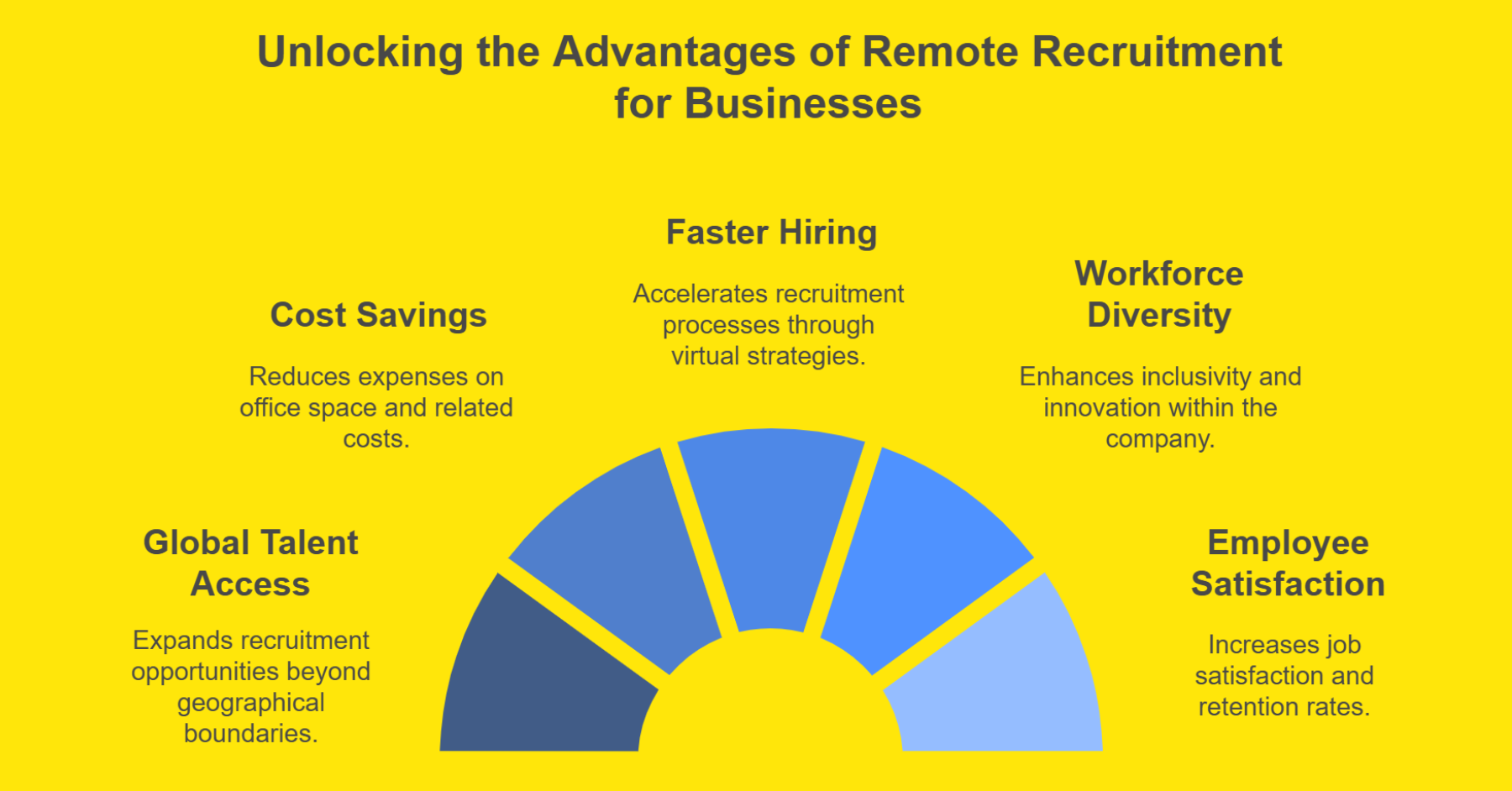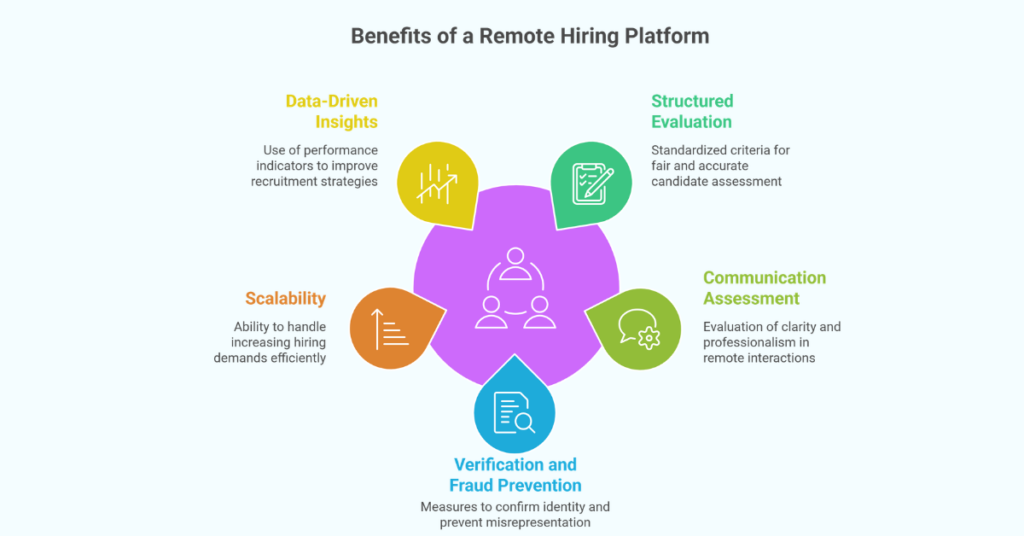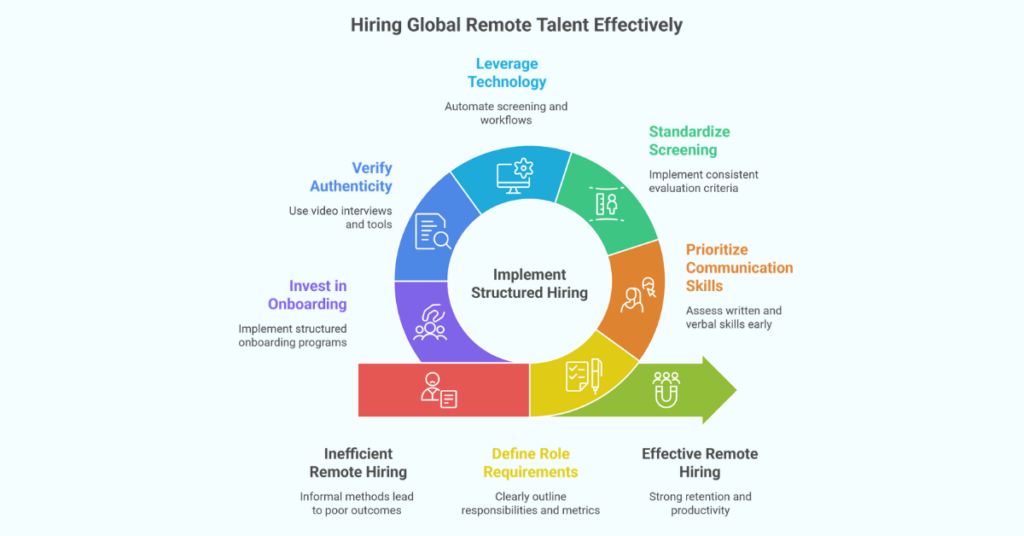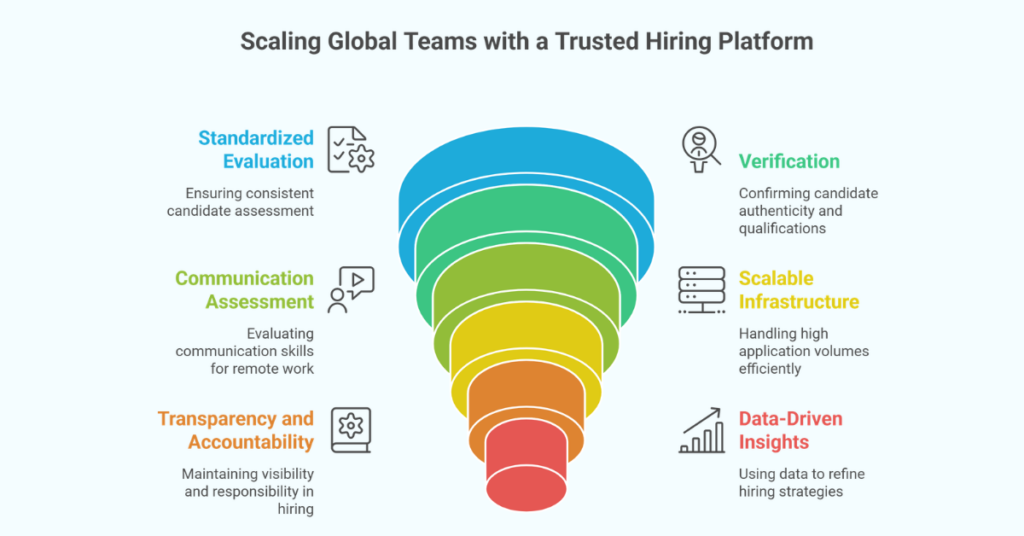“Remote Recruitment is transforming hiring by giving companies access to top talent worldwide, improving efficiency, and reducing hiring costs.”
Remote recruitment has redefined global hiring, allowing businesses to attract top talent from anywhere in the world. As companies adapt to remote work models, hiring practices must also evolve to ensure efficiency, collaboration, and seamless integration of new employees. Traditional hiring methods often involve long processes and geographical limitations, whereas remote recruitment opens doors to a more diverse and qualified candidate pool.
Companies that embrace remote recruitment benefit from cost savings, faster hiring cycles, and increased workforce flexibility. However, finding, screening, and onboarding remote employees requires a structured approach, supported by advanced digital tools and best practices. Without the right strategies, businesses may face challenges in assessing candidates, maintaining company culture, and ensuring productivity.
This article explores the benefits of remote recruitment, outlines best practices for hiring remote talent, discusses essential tools for virtual hiring, and provides solutions for common remote recruitment challenges. Whether you’re a business looking to expand your workforce or a recruiter seeking efficient hiring strategies, this guide will help you optimize your remote recruitment process.
The Benefits of Remote Recruitment
Remote recruitment offers businesses a range of advantages, from expanding the talent pool to improving hiring efficiency.
-
Access to Global Talent
Hiring remotely eliminates geographical restrictions, allowing businesses to recruit skilled professionals from different locations. This broadens the talent pool and increases the chances of finding the right candidate. -
Cost Savings on Hiring and Operations
Remote recruitment reduces expenses related to office space, travel, and relocation. Companies can allocate resources to business growth rather than administrative overhead. -
Faster Hiring Process
Virtual hiring strategies, such as video interviews and AI-driven screening, speed up recruitment. Automated processes reduce hiring time while maintaining quality candidate selection. -
Improved Workforce Diversity
Remote hiring promotes a more inclusive workforce by providing equal job opportunities to professionals regardless of their location. This enhances company culture and innovation. -
Increased Employee Satisfaction and Retention
Remote work flexibility improves job satisfaction, leading to higher retention rates. Employees who enjoy better work-life balance are more likely to stay with a company long-term.
Best Practices for Sourcing and Screening Remote Talent
Finding the right remote employees requires a strategic approach to sourcing, evaluating, and selecting candidates.
-
Define Clear Job Roles and Expectations
Remote job descriptions should specify required skills, responsibilities, and work expectations. Transparent job postings help attract candidates who align with the company’s needs. -
Use Remote Job Platforms and Online Recruitment Tools
Leveraging job boards and digital hiring platforms ensures access to qualified candidates. AI-powered job matching tools can help businesses connect with top talent efficiently. -
Conduct Structured Video Interviews
Video interviews allow recruiters to assess a candidate’s communication skills, professionalism, and cultural fit. Using standardized interview questions ensures fair and consistent evaluations. -
Assess Skills Through Practical Tests
Remote hiring should include skill-based assessments to evaluate a candidate’s ability to work independently and solve real-world problems related to the job. -
Check References and Work Experience
Verifying a candidate’s past remote work experience, soft skills, and ability to manage tasks independently helps ensure a smooth hiring process.
Tools and Technologies That Streamline Remote Hiring
The right digital tools can enhance efficiency and accuracy in remote recruitment.
-
Applicant Tracking Systems (ATS)
ATS software automates resume screening, shortlisting, and interview scheduling, streamlining the hiring process and reducing administrative tasks. -
Video Interview Platforms
Tools like Zoom, Microsoft Teams, and AI-driven video assessment software enable recruiters to conduct live and recorded interviews efficiently. -
Skill Assessment Platforms
Online testing platforms evaluate a candidate’s technical skills, problem-solving abilities, and soft skills, ensuring they are a good fit for the role. -
Collaboration and Project Management Tools
Platforms like Slack, Trello, and Asana facilitate remote team collaboration, allowing employers to assess how candidates adapt to virtual work environments. -
Employee Onboarding Software
Digital onboarding platforms help integrate new hires by providing training modules, documentation, and interactive resources to ensure a seamless transition.
Common Challenges in Remote Recruitment and How to Overcome Them
Remote recruitment presents unique challenges that businesses must address to ensure successful hiring.
-
Assessing Cultural Fit and Communication Skills
Virtual hiring makes it difficult to gauge a candidate’s adaptability to company culture. Conducting behavioral interviews and team-based assessments can help evaluate soft skills. -
Managing Time Zone Differences
Hiring globally means dealing with multiple time zones. Companies should implement flexible working hours or hire talent from regions with overlapping work schedules. -
Ensuring Productivity and Accountability
Remote employees must be self-motivated and disciplined. Employers can use productivity tracking tools and set clear performance expectations to monitor progress. -
Building Team Engagement and Connection
Remote teams may feel isolated without proper engagement strategies. Virtual team meetings, social interactions, and employee recognition programs help maintain a strong team culture. -
Handling Legal and Compliance Issues
Hiring remote employees across borders involves tax, labor laws, and contract complexities. Consulting legal experts or using global payroll services can help ensure compliance.
A Simple Guide to Remote Recruitment
Remote recruitment is revolutionizing hiring by making it more flexible, efficient, and inclusive.
-
What is Remote Recruitment?
A hiring approach that enables companies to recruit and onboard employees without geographical restrictions. -
Why is Remote Recruitment Important?
It helps businesses access top talent, reduce hiring costs, and improve workforce diversity and efficiency. -
How Does Remote Recruitment Work?
Companies use digital hiring platforms, video interviews, and online assessments to evaluate and hire remote employees. -
Key Benefits of Remote Recruitment:
- Access to a global talent pool
- Faster and cost-effective hiring
- Enhanced employee flexibility and retention
- Improved collaboration with digital tools
-
How to Implement Remote Recruitment?
Define job roles, use online hiring platforms, conduct structured interviews, and implement onboarding processes.
Solutions Provided by Remote Recruit
Remote Recruit simplifies the remote recruitment process by offering innovative hiring solutions for employers and job seekers.
For employers, Remote Recruit provides access to a vast global talent pool, AI-powered candidate matching, and video interview solutions. The platform streamlines the remote hiring process, ensuring companies find the best talent efficiently.
For job seekers, Remote Recruit connects candidates with top remote job opportunities, offering resume optimization, interview preparation, and personalized job recommendations. The platform helps job seekers navigate the remote hiring landscape and secure high-quality roles.
Conclusion
Remote recruitment is the future of hiring, providing businesses with a flexible, efficient, and cost-effective way to attract and retain top talent. Companies that adopt digital hiring solutions benefit from a broader candidate pool, reduced hiring costs, and increased employee satisfaction. However, overcoming remote hiring challenges requires structured strategies, the right tools, and effective onboarding practices.
Remote Recruit plays a crucial role in optimizing remote recruitment, helping businesses hire top-tier professionals while offering job seekers access to rewarding remote opportunities. Embracing remote recruitment ensures a competitive edge in the evolving job market.
Transform your hiring process with Remote Recruit. Sign up today to access advanced remote recruitment tools and connect with top talent worldwide!
Frequently Asked Questions (FAQs)
1. What is remote recruitment?
Remote recruitment is the process of hiring employees who work remotely, using digital tools and virtual hiring strategies.
2. How does remote recruitment benefit businesses?
It allows companies to hire globally, reduce costs, and improve hiring efficiency with digital tools and virtual hiring processes.
3. What are the biggest challenges in remote recruitment?
Challenges include assessing cultural fit, managing time zones, ensuring productivity, and complying with international hiring laws.
4. What tools help streamline remote recruitment?
Applicant tracking systems, video interview platforms, skill assessment tools, and onboarding software enhance the remote hiring process.
5. How does Remote Recruit help employers and job seekers?
Remote Recruit connects businesses with top remote talent, providing AI-driven job matching, video interview tools, and onboarding solutions.
